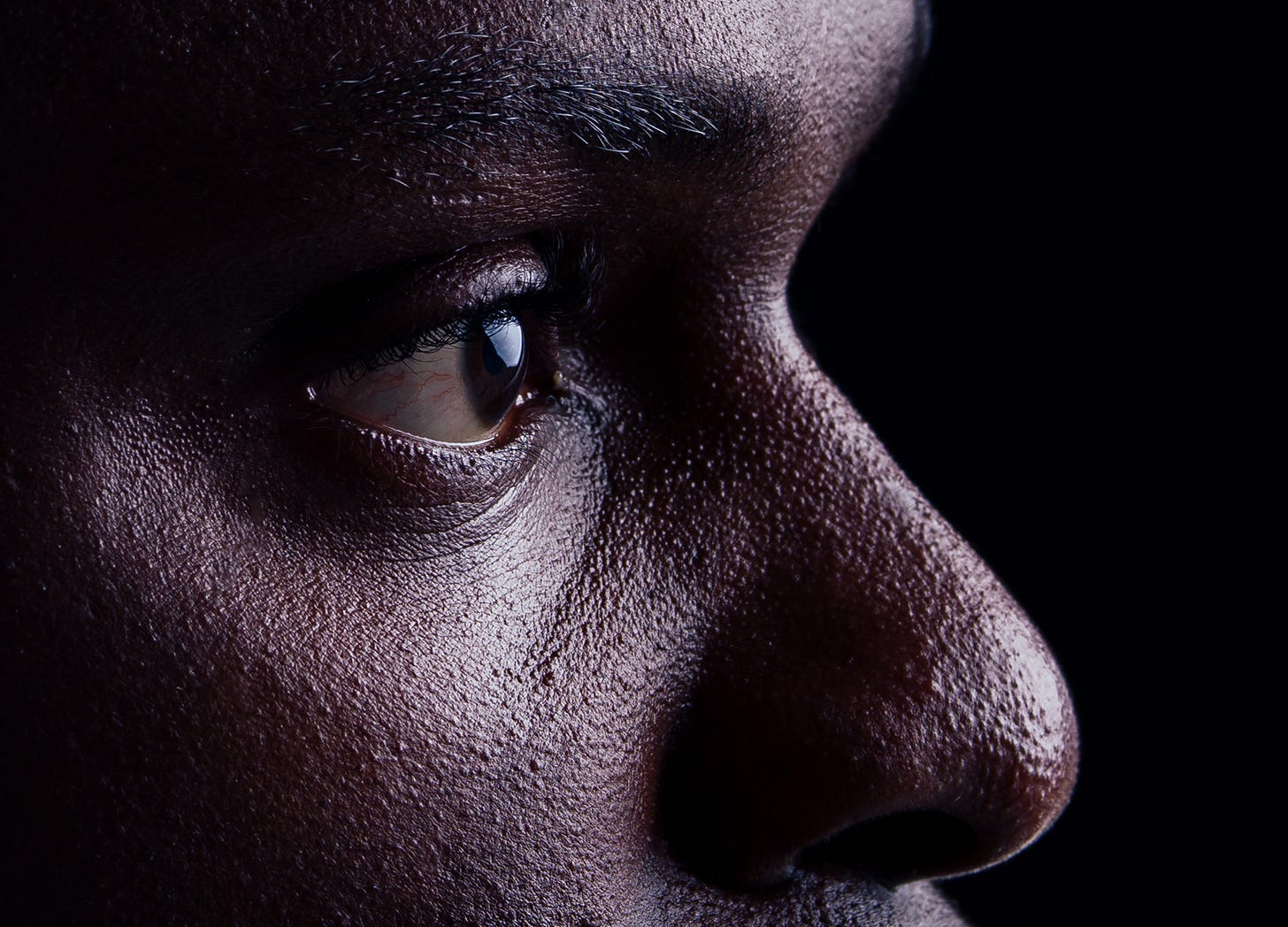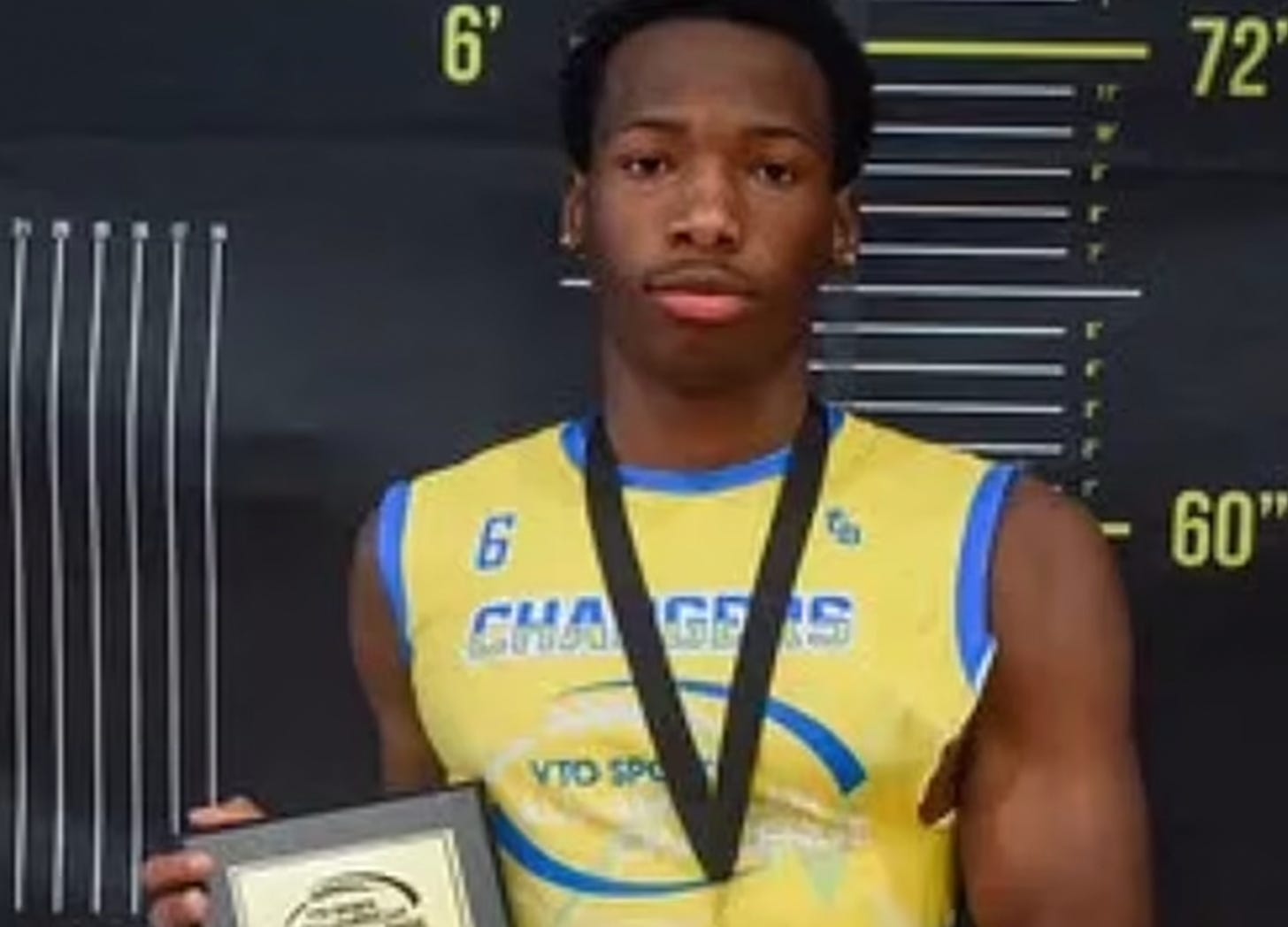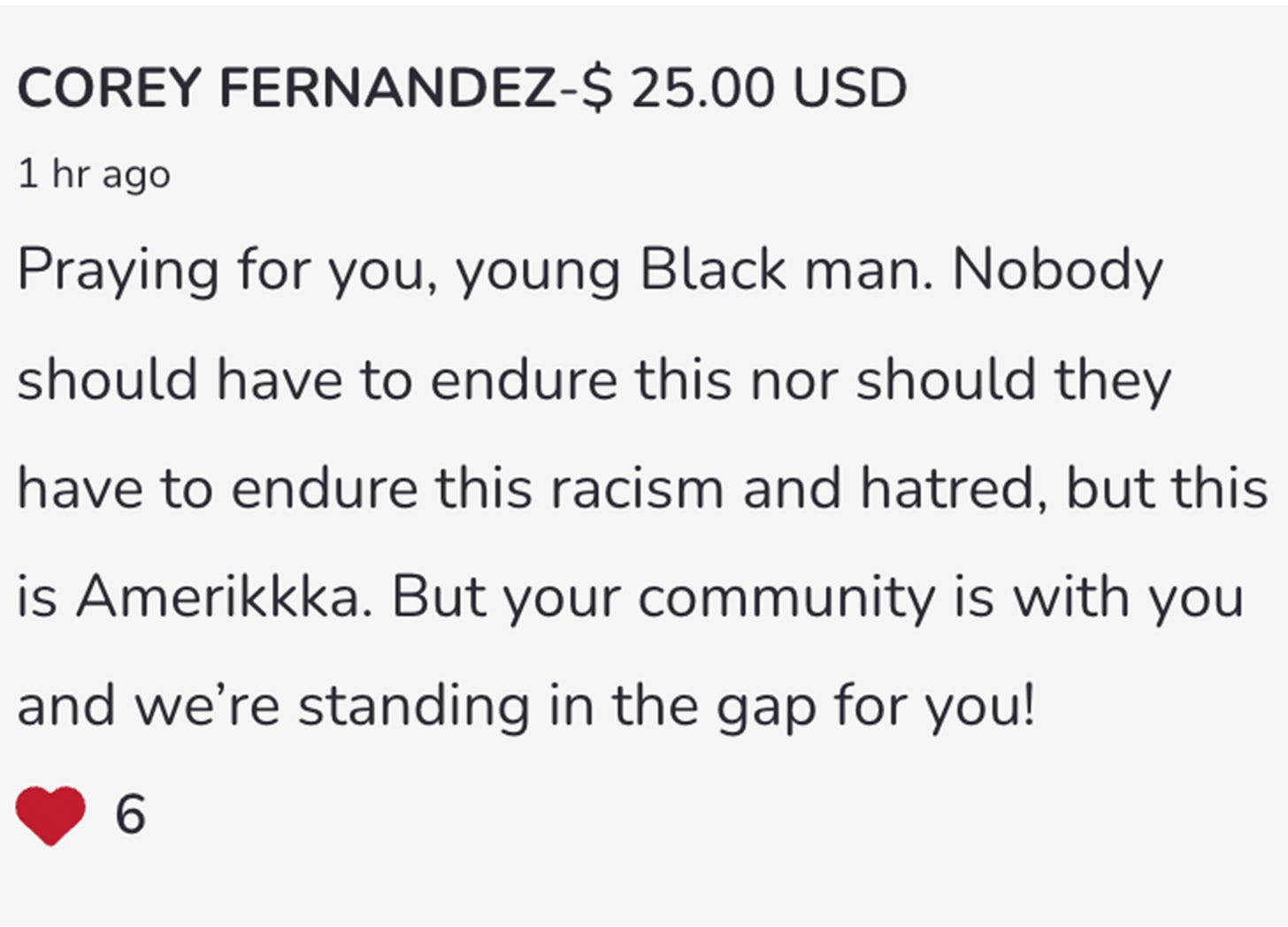Karmelo Anthony May Be Guilty — But He’s Not Responsible
How Democrats Weaponize Race and Condition Black Minds to Create a Killer
On the surface, it seems simple: a young man, Austin Metcalf, was stabbed to death by another teen, Karmelo Anthony. It's a tragedy, plain and brutal. The kind of story that should unite us in grief and demand reflection on violence among our youth. But dig deeper, and you'll find a truth far more disturbing than one individual's act of violence.
Karmelo Anthony may be guilty. But he's not responsible.
This isn't a statement meant to absolve him of what he's done. It's a recognition that the person who committed the act is also a product. He didn't just wake up and choose to be consumed by violent rage. That rage was nurtured, fed, and rewarded by the very culture that raised him.
What Kind of Rage Does This?
Stabbing someone to death isn’t random — it’s the end result of something learned. It takes a specific kind of internal fury to carry out that act without hesitation. Yet, across other cultures, even those who endure long-term abuse — from molestation to bullying to neglect — rarely respond by killing their tormentors.
So why do we see this kind of rage more often among young Black men?
The answer is uncomfortable, but it is cultural. The behavior isn’t genetic, tied to skin color, or the result of learned ideas and social reinforcement. It is disproportionately celebrated, excused, or justified in the environments where it takes root.
Cultural Conditioning: Rage as Identity
Karmelo Anthony didn’t develop his worldview in a vacuum. He was shaped by a culture that glorifies violence as strength, frames disrespect as grounds for retaliation and portrays victimhood as a permanent identity. Consider the ingredients:
Fatherlessness and the absence of discipline.
A peer culture where respect is earned through intimidation.
Music that glorifies violence, domination, and nihilism.
A school and media system that teaches that Black youth are always victims and never responsible.
This is not "Black culture" in the historical, rich, or celebratory sense. This is a manufactured subculture that has hijacked Black identity — one that was sold, exported, and promoted for profit and control.
When you're always a victim and never responsible, it creates a psychological cage. The idea that you can succeed on your own terms becomes foreign. You internalize helplessness. You begin to believe that success is for others, and failure is your birthright. That mindset poisons everything it touches.
Indoctrination vs. Experience
Karmelo's hatred for Austin wasn't born from personal experience. It wasn't some long, personal feud. It was ideological, taught, and programmed.
Black youth across America are being conditioned to see themselves as perpetual victims of a racist society and white people as default oppressors. When the world is framed this way, every slight becomes a battle in a larger war. Every confrontation is a chance to avenge centuries of injustice.
You see it in classrooms where lessons reduce history to white villains and Black victims, leaving no room for agency or complexity. You see it in viral TikTok clips where teenagers scream about "white privilege" and "microaggressions" as if those terms explain their entire life trajectory. You see it when a school fight breaks out and the aggressor says afterward, "They disrespected me" — as if that justifies violence.
You see it when celebrities and athletes validate these ideas, telling young people that America is rigged against them and that their anger is righteous, no matter how it manifests.
This is the result of:
Critical race theory-lite lessons in schools.
Media narratives that exalt outrage over facts.
Peer and pop culture that celebrates victimhood and vengeance.
Public figures who reinforce the idea that emotional response equals moral clarity.
These young men aren’t snapping — they’re responding exactly how they’ve been taught to respond.
And this conditioning doesn't only affect the poor or those raised in chaos. I’ve personally worked alongside Black men who had every sign of success: a stable two-parent home, a beautiful wife, a luxury car, six-figure careers — and yet they were still convinced that "whitey" was out to get them. Despite having reached a level of prosperity that most people would envy, they carried a deep, unshakable belief that the system was rigged against them.
That’s how powerful the indoctrination is. It overrides even lived experience. No amount of money, success, or social status could undo the idea that the world is hostile — because the idea was implanted so early, and repeated so often, that it became part of their identity.
Historical Clarity: The Lies They Tell
We’re told slavery is a uniquely American sin and a uniquely Black wound. That’s false. Every major civilization — from the Egyptians to the Chinese, Greeks, Romans, Arabs, and Native American tribes — practiced slavery. Africans sold other Africans into slavery long before Europeans arrived. The transatlantic slave trade was about power, geography, and vulnerability — not race.
And yet, American children are taught a cartoonish version of history, one that reduces a complex global institution into a racial morality play. In most public school classrooms, there's no discussion of African complicity in the slave trade, no mention of white abolitionists, and no comparison with global slavery. Only a steady drumbeat: America is uniquely evil, and white people must carry that guilt forever.
Meanwhile, political history is distorted beyond recognition. The Republican Party was founded in 1854 with one core mission: to oppose the expansion of slavery. Abraham Lincoln was the first Republican president. The Democrats, by contrast, were the party of slavery, secession, segregation, and Jim Crow. Southern Democrats filibustered civil rights bills. George Wallace and Bull Connor — all Democrats.
And yet, many young Black Americans today are taught the opposite. Why? Because the lie is useful. It keeps the outrage flowing. It creates permanent division. It ensures political loyalty. And worst of all, it keeps Black Americans emotionally tethered to a narrative that demands allegiance, not freedom.
White Liberals and the Democratic Playbook
There are two types of white liberals: the well-meaning and the strategic.
The former genuinely believe that Black Americans need racial preferences and equity programs to survive.
The latter know better. They understand that fear and anger keep voters compliant, and they deliberately feed that anger.
The modern Democratic strategy began with FDR, but it was perfected in the 1960s. If you can keep Black Americans fearful, disempowered, and emotionally reactive, you can keep them voting blue. Permanently.
Replace fathers with welfare.
Reward broken homes.
Push narratives of systemic oppression.
Offer symbolic gestures in place of real opportunity.
And when Black Americans act out in rage? They are excused.
A white person says the wrong word, gets assaulted by a Black teen, and the liberal media shrugs: "Well, that’s what happens." They don't say this out loud, but their attitude reveals the truth:
They don't believe Black people can control themselves like everyone else can.
That’s not empathy. That’s racism.
When Solidarity Replaces Accountability
One of the most harmful phenomena in Black America today is the reflexive instinct to defend the Black person no matter what. Even in clear-cut cases of violence, crime, or moral failure, many in the Black community will default to, "Well, he's one of us."
Take the example of the George Floyd riots. In cities across America, businesses were looted and burned, including those owned by Black and immigrant families. But when anyone within the community called for restraint or criticized the destruction, they were labeled a "sellout" or accused of siding with the enemy. The behavior wasn’t judged — the skin color of the person engaging in it was. That racial solidarity muted accountability.
Or consider how, in high-profile criminal cases involving a Black perpetrator and a non-Black victim, many voices in media and on social media rush to frame the suspect as a victim of systemic racism — before facts even surface. Loyalty isn't about truth or justice; it's about racial allegiance.
That kind of racial solidarity may feel empowering in the moment, but it does long-term damage. It sends a message to young Black kids that they're not really responsible for their choices. That if they act out, there will always be someone ready to rationalize it away.
No other community does this at scale. And it's not solidarity. It's a spiritual prison.
Rage Is Celebrated, Wisdom Is Silenced
Ask a room full of teenagers who Eazy-E is, and you'll get hands. Ask them who Thomas Sowell is? Silence.
Sowell, Walter E. Williams, and John McWhorter are three of the most brilliant Black thinkers of the modern era. Sowell may be the smartest man alive today, but most young Black Americans have never heard of him.
Why? Because wisdom is boring to a culture obsessed with power and victimhood. These men promote self-reliance, personal responsibility, and intellectual rigor — values that challenge the grievance-driven narratives being fed to young people.
Instead, minds are shaped by rappers who glorify crime, influencers who trade in outrage, and online personalities who tell them that their failures are always someone else's fault. Emotionalism is rewarded. Restraint is mocked. Slogans and hashtags drown out thoughtful nuance.
Even in schools, students are more likely to read Ibram X. Kendi or Ta-Nehisi Coates than Thomas Sowell. They're told to listen, not question. To feel, not think.
Wisdom requires work. Rage just needs a trigger. That’s why rage is easier to sell — and that’s why it wins.
The Immigrant and Biracial Exception
Here’s the quiet truth: Black immigrants don’t act like this.
Nigerian and Jamaican communities in the U.S. consistently rank among the most successful ethnic groups in terms of education, income, and family stability.
Many immigrants from Africa and the Caribbean arrive with a different mindset — one rooted in hard work, family discipline, and high expectations. They often express concern, even fear, about assimilating into “Black American culture,” not because they look down on it, but because they recognize its dysfunction.
In the documentary The Lost Boys of Sudan, which follows Sudanese refugees adjusting to life in America, there’s a moment that speaks volumes. A tribal elder — living in a hut with a dirt floor, no running water, no electricity, no technology — warns the boys before they leave: avoid American Black culture.
This man, who has never used an iPhone or logged into social media, who lives thousands of miles from any Western influence, still knew the danger. He told them clearly: the clothing, the attitudes, the anger — don’t emulate it. It will destroy you.
Let that sink in. A tribal leader in the middle of Sudan, with none of our technology or comforts, could still see what millions of American elites won’t admit — that much of what is branded as “authentic” Black American culture is spiritually poisonous.
These families aren’t taught to blame “the system.” They’re taught to beat the system through effort and discipline. They raise their kids to believe in their agency, not their victimhood.
Likewise, Black children raised in white homes — particularly those with stable families and strong values — often grow up without the rage and suspicion that has become common in urban Black America. They may still face challenges, but they aren't conditioned from birth to believe that success is for other people and oppression is their inheritance.
What this proves is simple: this isn’t about race — it’s about culture. The difference isn’t skin tone, it's story. The story you’re told about who you are, what’s possible, and who’s to blame.
Culture Killed Austin Metcalf
Karmelo Anthony stabbed Austin Metcalf. But he didn't build the mindset that led to that moment.
The culture did.
He is guilty. But he is not the root cause.
We are raising young Black men not to think but to rage. Not to grow, but to blame. Not to take responsibility but to seek revenge.
This isn’t just about one act of violence — it’s about a society that no longer demands introspection or accountability from its young men. It’s about a culture that offers validation instead of correction and excuses instead of expectations.
Until we are willing to challenge the systems, institutions, and narratives that are programming this rage into our youth, we will continue to bury the innocent and rationalize the actions of the guilty.
Culture killed Austin Metcalf — not Karmelo Anthony.**
Rise Up!
🗣️ Speak Truth: Share this piece if you believe culture matters more than race.
📚 Break the Silence: Read Thomas Sowell. Read Walter E. Williams. Read John McWhorter. Share their ideas.
💬 Push Back: Don’t be afraid to challenge the lies that keep young people in chains.
💪 Demand More: From our leaders, from our schools, from our media — and from each other.







I missed the part that detailed Anthony's upbringing and the culture in which he was raised that substantiated your claims.